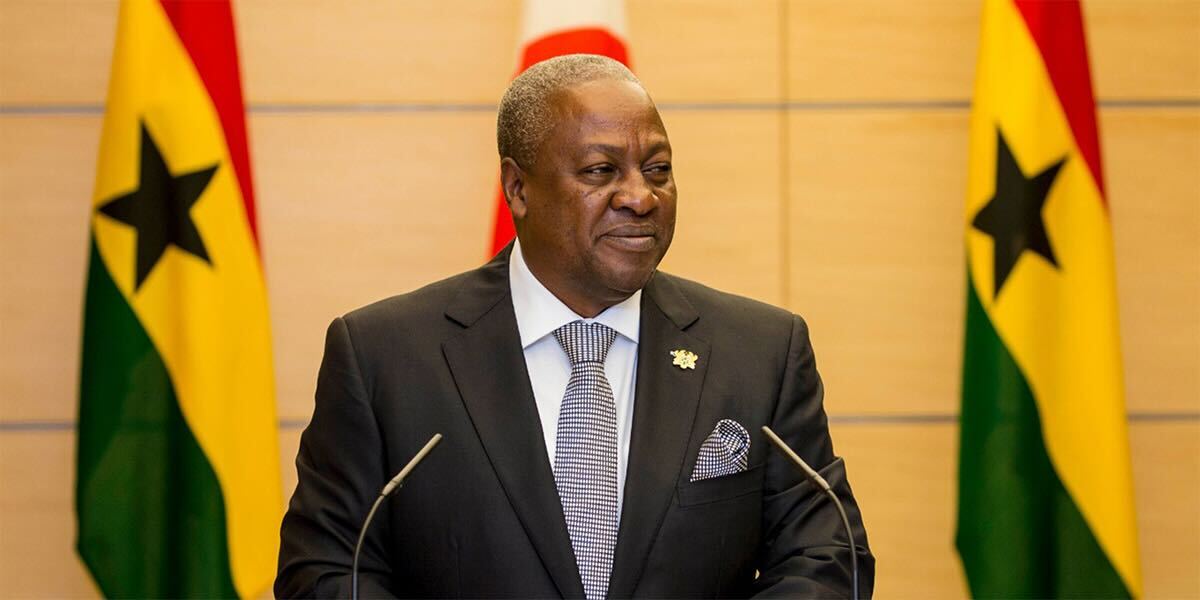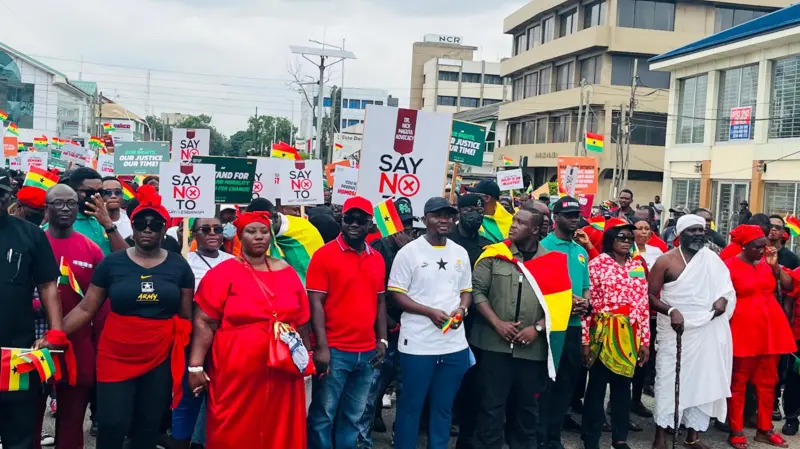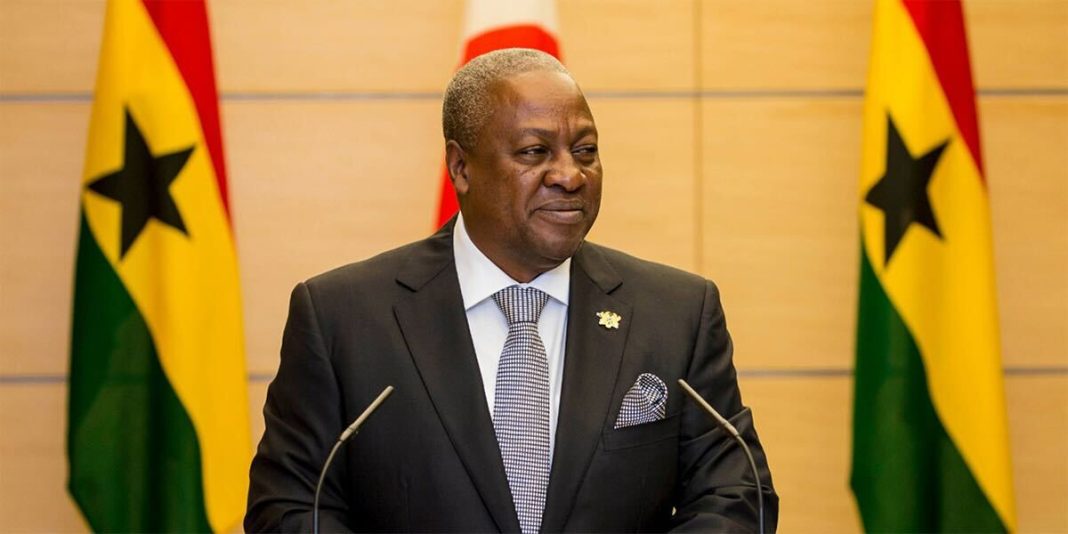
Ghana is preparing to advance one of the most punitive anti-LGBTQ+ laws in the region, as President John Dramani Mahama says he will sign the Human Sexual Rights and Family Values Bill if Parliament passes it, a decision that threatens queer and trans Ghanaians and mirrors a dangerous, accelerating trend across Africa where identity, autonomy, and empathy are being treated as crimes in the name of “culture” and “family.”
Ghana is edging closer to one of the harshest anti-LGBTQ+ legal regimes on the African continent, as President John Dramani Mahama has pledged to sign the revived Human Sexual Rights and Family Values Bill if Parliament passes it. The bill, which seeks to criminalize queer and trans identity, gender-affirming care, same-sex relations, and even allyship, represents a tightening noose around Ghana’s LGBTQ+ community, and a signal of a wider, alarming trend across Africa.
The resurrected legislation follows earlier versions introduced in 2021, after the opening of an LGBTQ+ community center in Accra sparked backlash from conservative religious groups. That initial effort led to the center’s abrupt closure and the drafting of the first “Anti-LGBTQ+ Bill.”
Under the newest version, individuals who identify as lesbian, gay, bisexual, pansexual, transgender, nonbinary, or queer could face up to three years in prison. People who “promote or support” LGBTQ+ inclusion could face up to 10 years behind bars. Funding, organizing, or forming an LGBTQ+ advocacy group would be grounds for prosecution. Even seeking gender-affirming care would criminalize a person.
Homosexual conduct is already illegal in Ghana under a British colonial-era statute, though prosecutions are rare. The new bill would radically expand criminal liability, turning queerness itself into a crime and punishing empathy in the process.

Human rights organizations have sounded the alarm. Human Rights Watch has condemned the bill as fundamentally incompatible with Ghana’s tradition of tolerance. “Such a law would not only further erode the rule of law,” researcher Larissa Kojoué said, “but could also lead to further gratuitous violence against LGBT people and their allies.”
The stakes are high—The IMF warned in 2024 that the bill could jeopardize billions in international financing, though supporters have dismissed those concerns. In March 2025, opposition lawmaker John Ntim Fordjour told Reuters that, with Donald Trump back in the White House, Ghana no longer needed to fear global backlash.
“The global political climate is favorable for conservative values,” he said, pointing to the emboldening effect of the second Trump administration. That influence has reached deep.
Trump’s foreign policy has already reshaped the terrain for LGBTQ+ people abroad. Four days after he took office, the administration cut over 90% of USAID and State Department foreign assistance programs, including major reductions to PEPFAR, a vital HIV/AIDS initiative that has saved millions across Africa. Clinics in Accra and other major cities have shuttered or run out of essential medications, leaving LGBTQ+ Ghanaians, who already navigate discrimination in health care even more vulnerable.
The rise of American conservative evangelical organizations has further fueled the movement. Groups such as the American Center for Law and Justice and Family Watch International, long involved in crafting anti-LGBTQ+ legislation in Uganda and Kenya, have intensified efforts in Ghana.
Bloomberg reporting shows that 17 U.S. conservative groups spent $5.2 million in Africa in 2022, a dramatic 47% increase from 2019 to champion legislation restricting queer and trans people’s rights.
This surge is part of a broader pattern across the continent. From Uganda’s draconian Anti-Homosexuality Act to similar legislative pushes in Kenya and Tanzania, Africa has become the testing ground for an imported, well-financed project of moral panic.
It is a trend that weaponizes colonial criminal codes, wraps them in the cloth of “family values,” and punishes those who dare to dream of living freely. It is dangerous not only for LGBTQ+ communities but for democracy, public health, and basic civil liberties. When a state criminalizes identity, it corrodes the social fabric that keeps a nation whole.
President Mahama’s support of the bill has intensified anxiety among LGBTQ+ people, activists, and allies. During a November 18 meeting with the Christian Council of Ghana, Mahama said he was “completely aligned” with the group’s beliefs.
He emphasized that “marriage is between a man and a woman” and that “a person’s gender is determined at birth,” aligning himself with religious conservatives who have long championed the bill.
Mahama clarified that the bill expired when the previous Parliament dissolved, but confirmed that lawmakers will soon reintroduce it. “If the Parliament of the people of Ghana endorse the bill, and vote on it, and pass it, and it comes to me as president, I will sign it,” he said.
The endorsement has widened a political rift. Members of the Minority in Parliament accused the government of intentionally delaying the bill’s reintroduction for political gain. Yet a cross-party coalition has already revived it, setting the stage for swift passage.
Meanwhile, Ghanaian artists and activists have urged citizens to recognize the sweeping consequences of the bill. In an interview with Context, musician Emmanuel Owusu-Bonsu, known as Wanlov the Kubolor, warned that the legislation is about far more than sexuality or gender.
“This is a bill that criminalizes empathy and humanity,” he said. “If you’re a landlord, an employee, an employer, and you don’t report people whom you suspect to be queer, you are going to be criminalized. So it’s actually a bill against every single person in Ghana.”
His warning is a reminder that anti-LGBTQ+ laws rarely stop at criminalizing identity. They create a culture of suspicion, empower police to act without accountability, and fracture communities. They invite everyday citizens to police one another. And they transform fear into governance.
For many queer and trans Ghanaians, the danger is immediate. For Africa, the pattern is becoming unmistakable. As conservatism rises globally, encouraged by shifts in U.S. foreign policy, a wave of anti-LGBTQ+ sentiment is making its way across the continent, carried on the winds of nationalism, fundamentalism, and foreign influence masquerading as faith.
The story unfolding in Ghana reaches beyond its borders. It asks the world to pay attention to a continent where queer lives remain under siege, and where silence has always been a dangerous ally to oppression.
